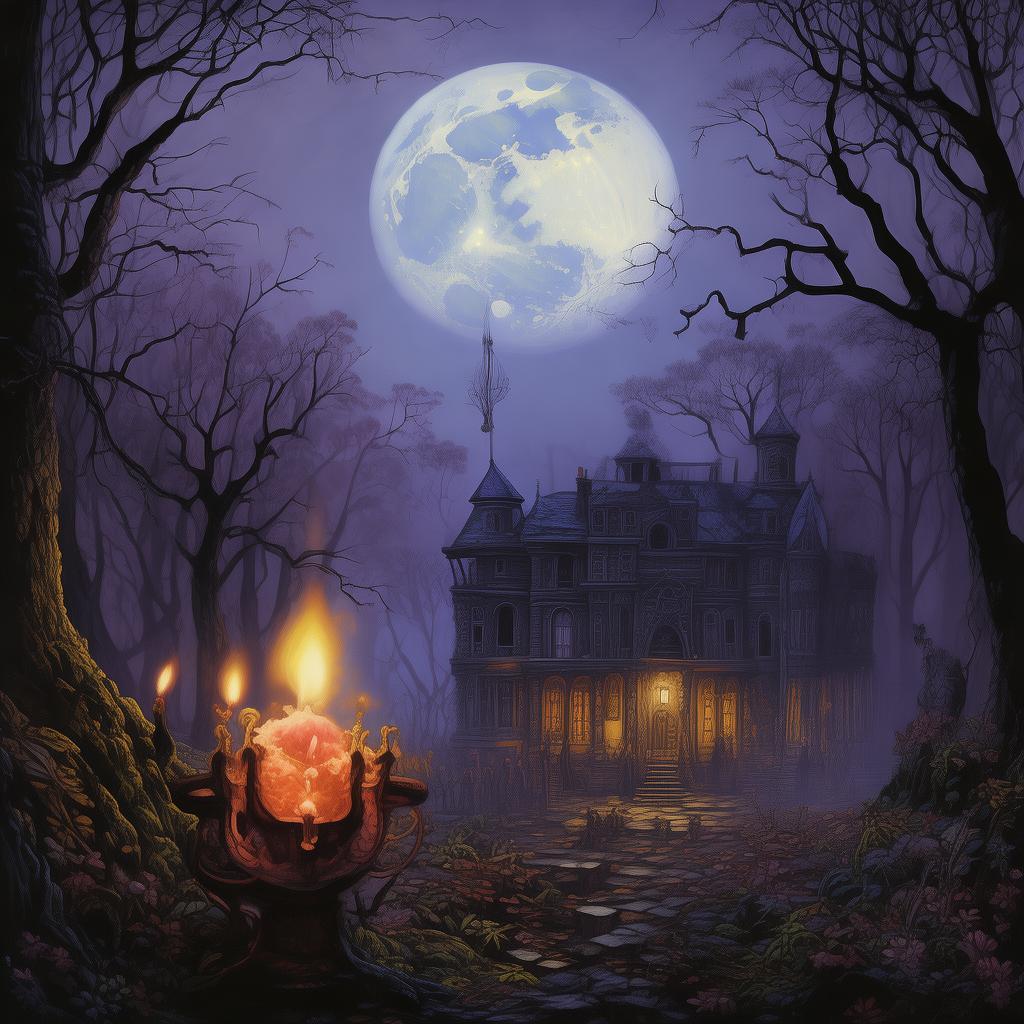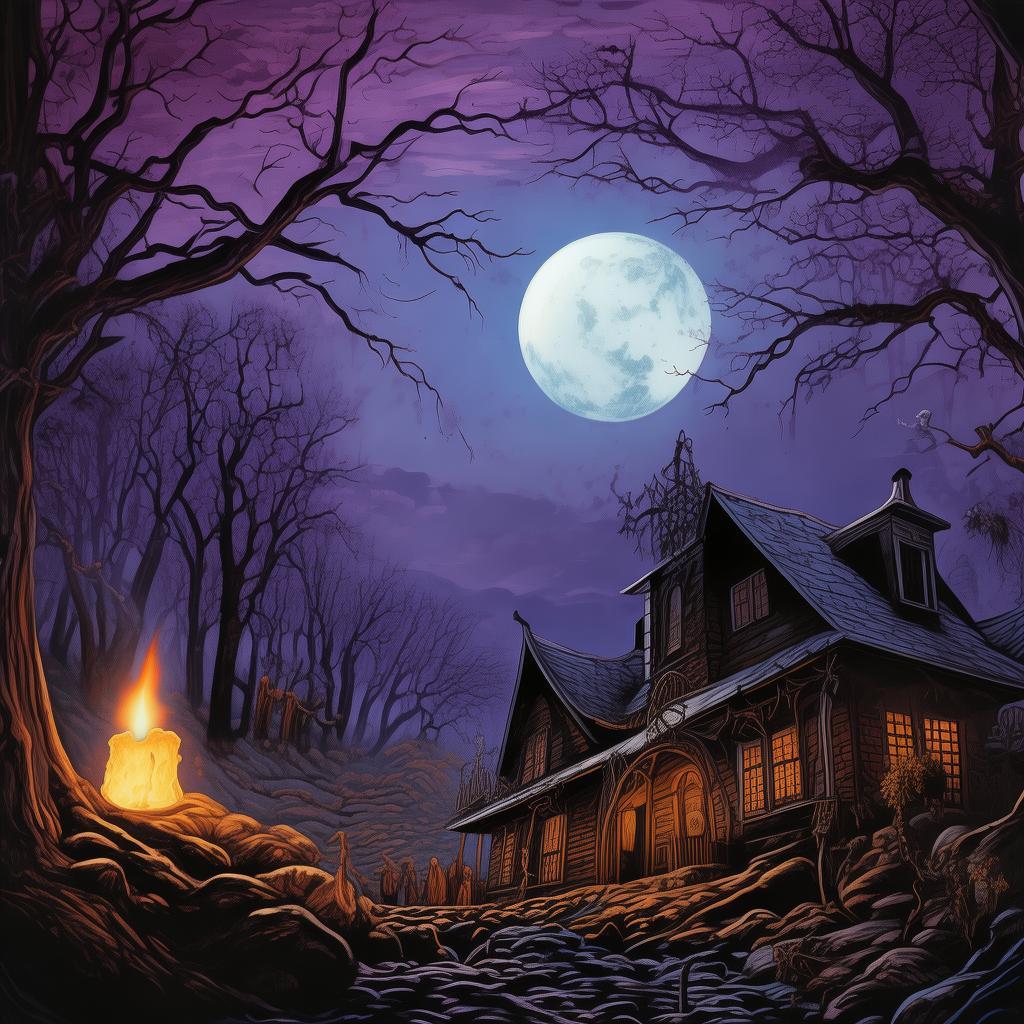Whispers in the Waning Moon
The inn stood at the edge of the village, its once-grand facade now crumbling under the weight of time. The innkeeper, Eliza, was a woman of quiet strength, her days filled with the mundane tasks of keeping the place afloat. She had seen better times, when the inn was a beacon of warmth and laughter, but those days were long gone.
The village had changed too. Once a place of vibrant life, it had become a shadow of its former self, with many of the young people leaving in search of opportunity. Eliza often found herself the last one left, a ghostly figure amidst the ruins of the past.
One night, as the moon hung low and waned, a knock at the door shattered the silence. Eliza, weary but curious, opened the door to find a woman standing before her. She was young, with eyes that seemed to carry the weight of a thousand stories, and her voice was a whisper that carried across the empty halls.
"Can I stay here for a while?" the woman asked, her voice barely audible above the rustling of the wind outside.
Eliza hesitated, then nodded. "Of course. We're all travelers in one way or another, aren't we?"
The woman, who introduced herself as Clara, claimed to be seeking refuge from a storm. Eliza offered her a room, and Clara accepted, her movements slow and deliberate as if she were a creature of the night.
As the days passed, Clara became a fixture at the inn. She would spend her evenings in the parlor, her eyes often wandering to a portrait of a young man and woman, their faces etched in a timeless love. Eliza had always assumed the painting was of the inn's founders, but Clara knew better.
One evening, over a pot of tea, Clara spoke of her past. She had loved a man, a man she had lost, and she believed he had found his way to her through the inn's walls. "I feel him here," she said, her voice trembling. "I can almost hear his laughter, see his face in the moonlight."
Eliza's heart ached for Clara, and she began to notice the changes in her. The woman was losing weight, her eyes were hollow, and she would sometimes sit by the portrait for hours, speaking to the image as if it were real.
One night, Eliza followed Clara into the parlor, where she found her kneeling before the portrait. "He was a wonderful man," Clara whispered, "but he was not the one you loved." Eliza's heart raced as she realized Clara was referring to her own past.
"Who is it, then?" Eliza asked, her voice barely above a whisper.
Clara turned to her, her eyes filled with sorrow. "You are," she said. "He loved you, and you were the love of his life."
The revelation was shattering. Eliza had always believed the man in the portrait was her husband, a man who had disappeared years ago. She had never stopped loving him, and now she knew he had loved her back.
But as the truth settled, another question emerged. If Clara had loved her husband, why was she here? And why had she been speaking to the portrait?
Eliza decided to confront Clara. "Why are you here, Clara? What do you want from me?"
Clara looked at her, her eyes filled with a mixture of love and sorrow. "I came to find him, to find you," she said. "But now that I have, I'm not sure I can leave."
Eliza's heart ached, but she knew she had to make a decision. She had to let go of the past and move on.
The next day, Clara left the inn without a word. Eliza watched her go, her heart heavy with the weight of lost love and the promise of a new beginning.
That night, as Eliza sat by the fireplace, the portrait of her husband began to shimmer, and a figure emerged from within it. It was him, just as Clara had described him, with a smile that seemed to reach through time.
"Eliza," he said, his voice as gentle as the wind. "I have missed you."
Eliza reached out, her fingers brushing against his face. "I have missed you too," she whispered, her tears mingling with the warmth of the fire.

The figure vanished, leaving Eliza alone with her thoughts. She knew that her husband was gone, but she also knew that he had never really left her. The love they shared was eternal, transcending time and space.
As the days passed, Eliza began to rebuild the inn, not as a place of sorrow, but as a sanctuary for those who needed it. She had found her peace, and with it, a new hope for the future.
And so, the inn stood at the edge of the village, a testament to love and loss, and the enduring power of the human heart.
✨ Original Statement ✨
All articles published on this website (including but not limited to text, images, videos, and other content) are original or authorized for reposting and are protected by relevant laws. Without the explicit written permission of this website, no individual or organization may copy, modify, repost, or use the content for commercial purposes.
If you need to quote or cooperate, please contact this site for authorization. We reserve the right to pursue legal responsibility for any unauthorized use.
Hereby declared.









